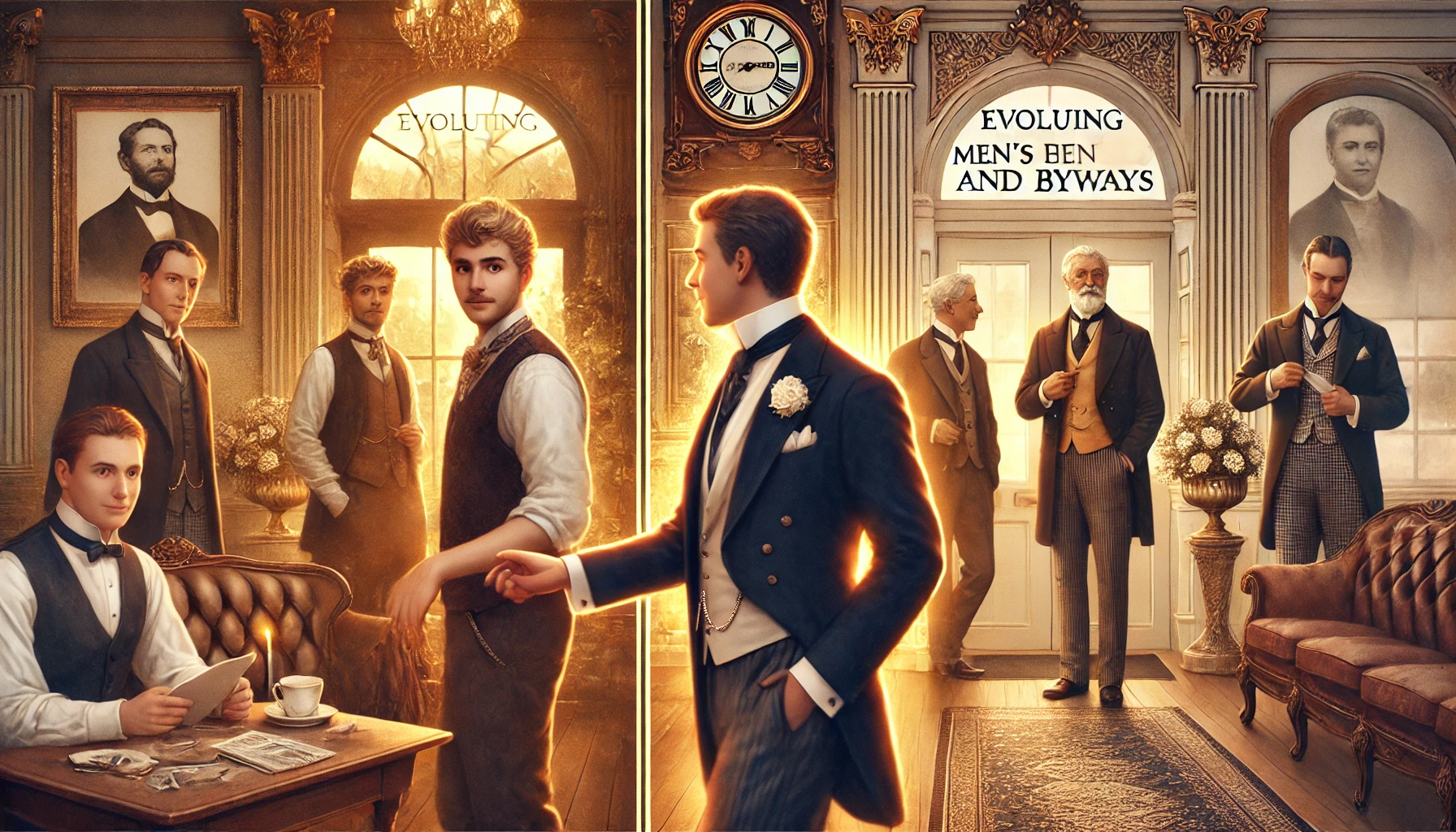Chapter 31 — Men’s Manners
byChapter 31 – Men’s Manners begins with a reflection on how societal expectations for male conduct have transformed over time. The author opens with a sense of detachment from the current trends among younger men, yet he acknowledges that, in some respects, manners have actually improved. What was once associated with stiff formality has become more approachable, yet the author notes that younger men today still manage to convey respect and attentiveness in their own way. This evolution does not necessarily reflect a decline in standards but rather a shift in expression—politeness is shown through tone, ease, and a natural respect for others, especially women and elders.
The writer recounts three phases of male behavior from his experience. The first involved men of the “old school,” paragons of dignity and courtesy who modeled their actions on figures like Sir Charles Grandison. They opened doors, listened attentively, and used language with care, believing that civility was a moral virtue. These men carried their manners as a part of their identity, seeing good behavior not as a social performance but as a duty passed down from generation to generation.
The second phase came with men born around 1875, whom the author describes with less admiration. Educated often in English universities, they cultivated a manner that was cool and emotionally detached, thinking it fashionable to appear bored or indifferent. In social circles, they would withhold conversation, leaning on witless aloofness to seem superior, and as a result, often made themselves dull company. Their self-assured reserve, the author argues, lacked both charm and substance, and contributed to a colder social environment.
Yet with the rise of a new generation, the author observes a refreshing change. Young men today appear more balanced—well-mannered but not overly formal, confident but not arrogant. This improvement is largely credited to the influence of their mothers, many of whom were cultured, intellectually curious, and emotionally intelligent. Unlike in earlier generations, these women played a crucial role in shaping the character and values of their sons, emphasizing kindness, conversation, and the value of humility.
The chapter makes a broader point about how mothers have long been the hidden architects of civility. The author suggests that behind every well-mannered man stands a mother who taught him to think of others, to listen well, and to speak with purpose. These qualities are not easily taught by fathers alone, who often focus more on practical skills and ambitions than on interpersonal grace. The result is a generation of young men who are more emotionally attuned and socially adaptable.
Another key point in the essay is the rejection of blind admiration for foreign behavior, especially the outdated tendency to idolize English upper-class stoicism. The author contends that it is no longer desirable—or necessary—to model oneself after British gentlemen. American young men now have a clearer sense of cultural identity and do not look abroad for validation. They’ve inherited the best of both traditions: the composure of the old world and the warmth of American sincerity.
There’s also an underlying commentary on social aspiration. Where once certain types of behavior were seen as tickets into high society, modern manners focus more on personal authenticity. A young man earns admiration today not by mimicking aristocratic distance, but by engaging others with interest and respect. The trend of treating people well regardless of their status, gender, or background reflects a shift toward more democratic values in personal interactions.
In the final stretch of the chapter, the author expresses hope that this upward trend will continue. As families place greater importance on emotional intelligence and character over superficial social climbing, the next generation may carry forward a blend of old-fashioned courtesy and modern openness. This hopeful tone leaves readers with a sense that society, though evolving, is not losing its moral compass but refining it.
By tracing these cycles of behavior—from rigid courtesy to empty aloofness, and finally to authentic grace—the chapter delivers both a cultural critique and a hopeful affirmation. It suggests that while manners may change form, their core purpose remains: to honor those around us and to build a society where mutual respect is quietly but powerfully upheld.


